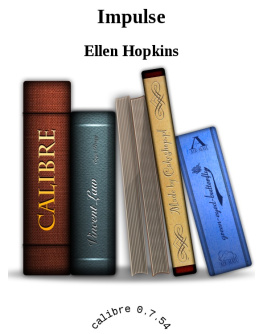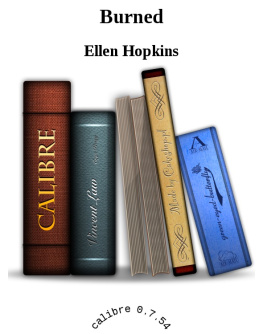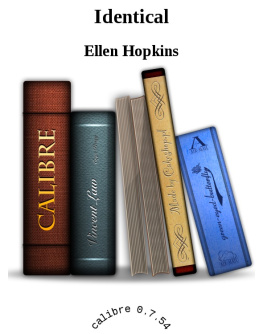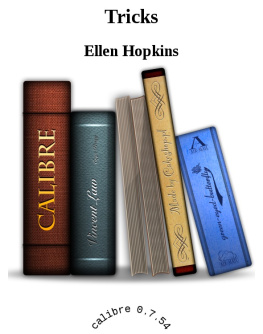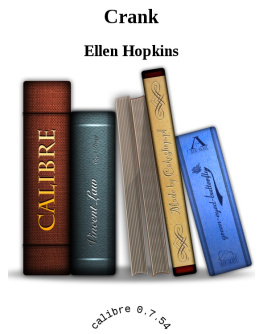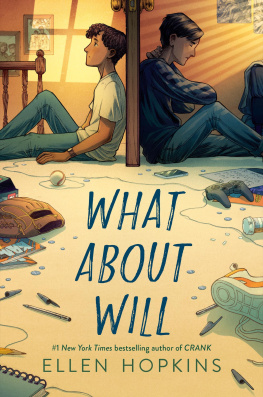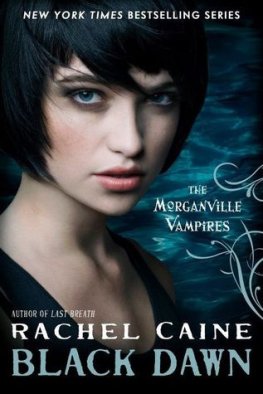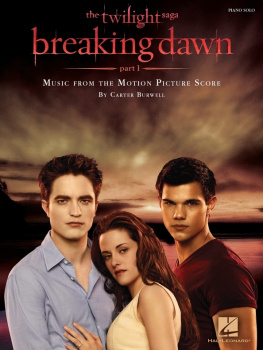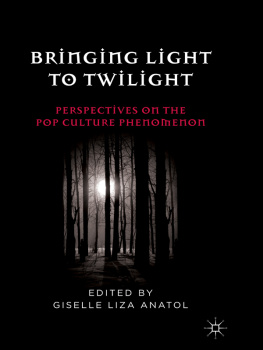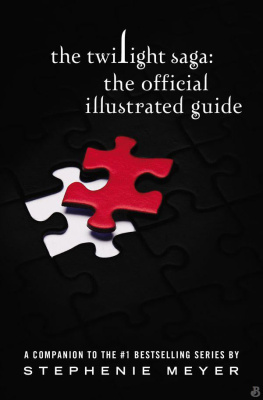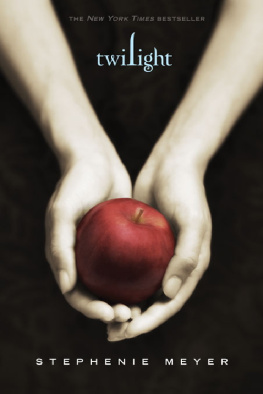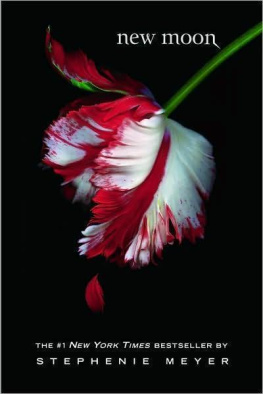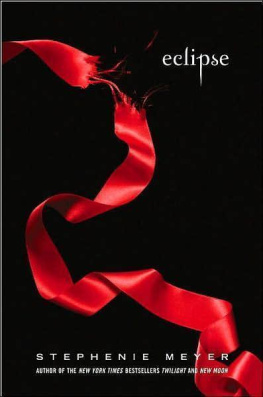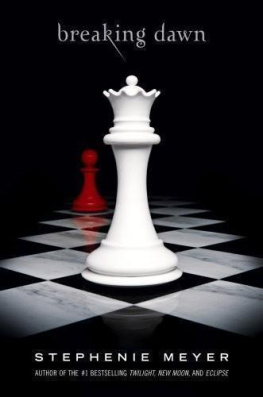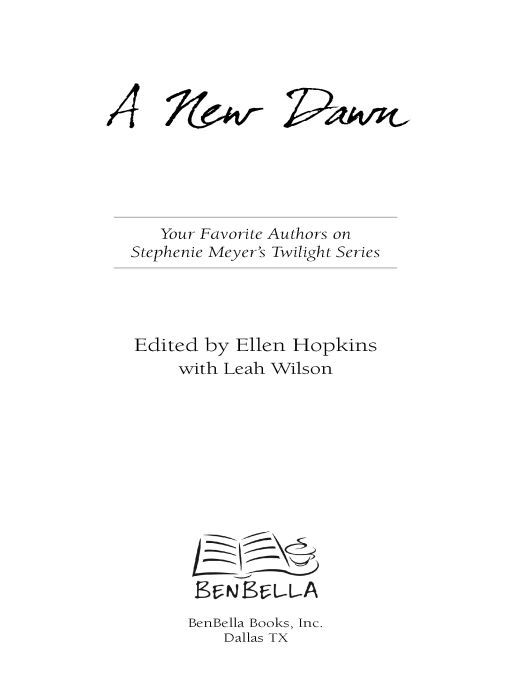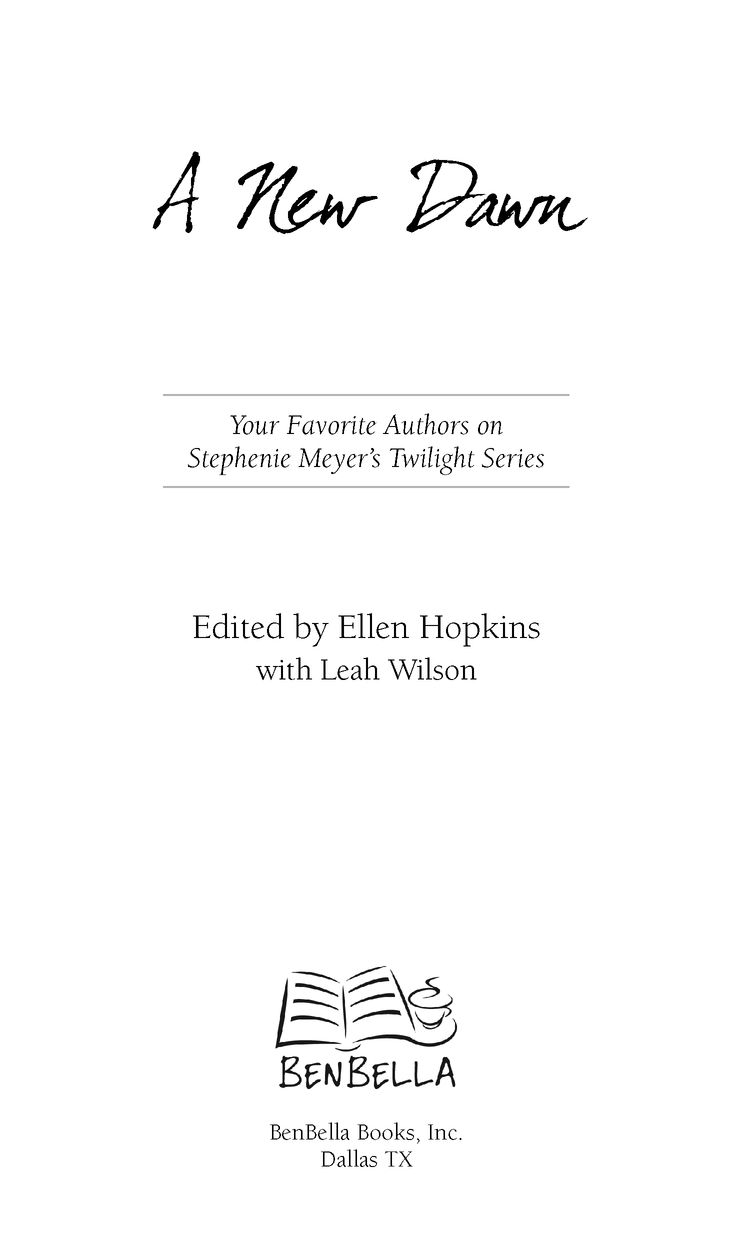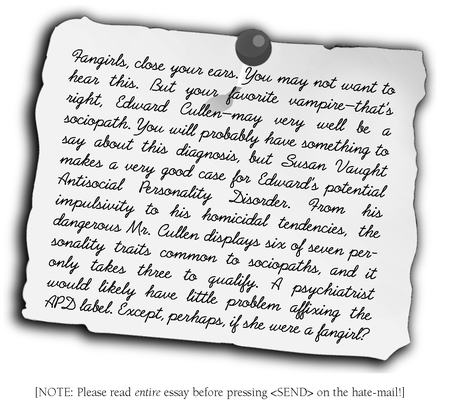Table of Contents
INTRODUCTION
To Twilight or Not to Twilight
Ellen Hopkins
Tread carefully, dear readers. Theres a new vampire in town, and Edward Cullen is so not your mothers vampire. Okay, he does have a few things in common with more classic bloodsuckers like Anne Rices Lestat. Hes cultured. Insanely alluring. Downright dazzlingly sexy. Drop-dead gorgeous, in fact. (Sorry, couldnt help the double entendre, and youll find more in this book. Authors just love stuff like that.) But what makes Edward so damn addictive is not his undeadness. Its his abiding humanity.
Okay, confession. I was at first dumbfounded by the success of Twilight and its sequels, Eclipse, New Moon, and Breaking Dawn. Oh, Ive always understood the lure of the vampire. For many years I was, in fact, a dedicated horror reader. Stephen King and Dean Koontz were always at the top of my reading lists, along with classic authors like Edgar Allan Poe, Bram Stoker, and Mary Shelley. When Ms. Rice came along, I devoured her books, much like her characters devoured their unsuspecting victims. If I could have faulted Rices books, it would have been for their heavy descriptiveness, which at times overpowered the action. I preferred the pacing of King, whose storytelling fascinated me on an instinctual level that I didnt understand until I became a writer.
You see, as writers, we often analyze the works we loved to read. What drew us to them? Why did they work for us? What kept us turning the pages? When I went back to consider why I loved Stephen Kings books, it came down to one central thing. Character. Yes, he writes high-concept plots, but they evolve from character, something I strive to do with my own books. King is the master of character. He takes ordinary people and puts them into horrific situations. How they deal with them has everything to do with who they are as humans. King taps into the heart of us allour shared humanity.
But what of this Stephenie Meyer phenomenon? She says she first pitched Twilight as a suspense romance horror comedy. What, exactly, is that? And why would anyone want to read it? I didnt think I did, and I resisted for a very long time. I never read books just because everyone else is reading them. Why start with this one? A first novel, five hundred pages, inspired by a dream and written in three months? To Twilight or not to Twilight? Definitely not.
And then I started to notice an interesting fact. Her readership and mine overlap. How could that be? I dont write horror (despite the fact that I once thought Id be the next Stephen King). Nor do I write suspense, comedy, or romance. I write edgy contemporary fiction. I write about drugs. Suicide. Abuse. And not the kind of abuse that results from some undead being chomping into my protagonists. What could our books possibly have in common?
The only way to find out, of course, was to read them. And when I was asked to contribute to this anthology, it gave me the perfect excuse to do what I swore never to doread Stephenie Meyer. I picked up Twilight with some trepidation. I had heard a lot about the bookboth good and bad. I suppose all books have fans and whatever the opposite of fans is. (People who dont like them is awfully unwieldy. Antonym for fan, anyone?)
I have now read all four. Because Im a writer, I likely read with a different eye than someone reading strictly for pleasure, and my opinion is surely colored by my own ideas about good writing and what makes a compelling read. Not to mention what makes characters interesting. Meyer, an English lit major, has said her favorite author is Jane Austen, and there is an evident Austen flavor in Meyers writing. Her storytelling flows like a slow, steady stream, its bank lush with adverbs and adjectives. Closer to Rice than King, and definitely nothing like my own spare style, which is more a hail-storm, eroding modifiers from the page. Nope. No crossover appeal there.
Well then, how about our heroines? Meyers Bella is flawed, and certainly, so are my female protagonists. Not a solid one in the bunch, and like Bella, all make poor decisions along their journeys. But Meyer, who has called her teen self a regular good girl, writes her Bella as a regular good girl, too. When wronged or hurt, she tends to flee, or to withdraw into some inner sanctum where others cant touch her. I prefer to write about irregular troubled girls. Though all of them are decent at their cores, when forced to react, they are much more likely to exact revenge than to suffer in silence. If Meyers readers love Bella, how then can they be drawn to the young women in my books? Hmm. Quite the conundrum.
That brings us to our leading men. Meyers readers seem to have formed two fan clubs: the Everything Edwards and the Just Jacobs. From the start, Jacob is clearly the underdog (underwolf?), but his pack loves him every bit as much as the other camp adores Edward. Both characters might be categorized as beautiful bad boys with big hearts. Ive definitely got a couple of those in my books. But Ive also got beautiful good boys, and bad boys with miniscule hearts. So no, our heroes, if you can call them that, dont have all that much in common. What, then, is the collective draw?
As I read the essays in this book, certain words and phrases kept popping up. Love. Romance. Unrequited romance. Longing. The search for belonging. Seduction. Obsession. Connection. Lack of connection. Love. Forgiveness. Passion. Fear. Fear of growing old. Love. Finally, something clicked. My books have all those elements, too. And those things go straight to the heart of us, as people. Meyers books and my books do have something very basic in common. They speak, as Jane Austens and Stephen Kings books do, to our shared humanity.
If you ask someone what Twilight is about, chances are, theyll say vampires. New Moon? Werewolves, of course. But if you take a good, hard look at Edward and Jacob, both are more human than monster. They long. Fear. Obsess. Seek connection. Most of all, they love, and their all-encompassing love for Bella is the kind of love every human being instinctively seeks. Stephenie Meyers books are not about monsters. They are about people finding forever love, something that resonates not only with her readers and my readers, but all readers. For by opening those stunning book covers, we become immersed in Edward and Jacobs love for Bella and we absorb it, page by page.
And who doesnt need a little more love?
A Very Dangerous Boy
Susan Vaught
Im the worlds best predator, arent I? Everything about me
invites you inmy voice, my face, even my smell.
EDWARD CULLEN, TWILIGHT
Edward Cullen.
Yes, I know, every fangirl in the Twilight universe just squealed at the mere mention of his name. And whats not to love? Hes powerful. Hes rich. Hes romantic. And, as he notes in the quote above, hes thoroughly enticing in every possible way.
Hes also a predator, just like he says.
For the first three books in the Twilight series, Edward Cullen is a dangerous, bloodthirsty predator at constant risk of murdering the girl he loves. In the fourth book, after he spends several days conspiring to kill his unborn child, he finally does take Bellas life. More specifically, he rams a needle full of vampire venom into her heart, then uses his teeth to keep filling her with venom in the most brutally efficient fashion imaginable.


